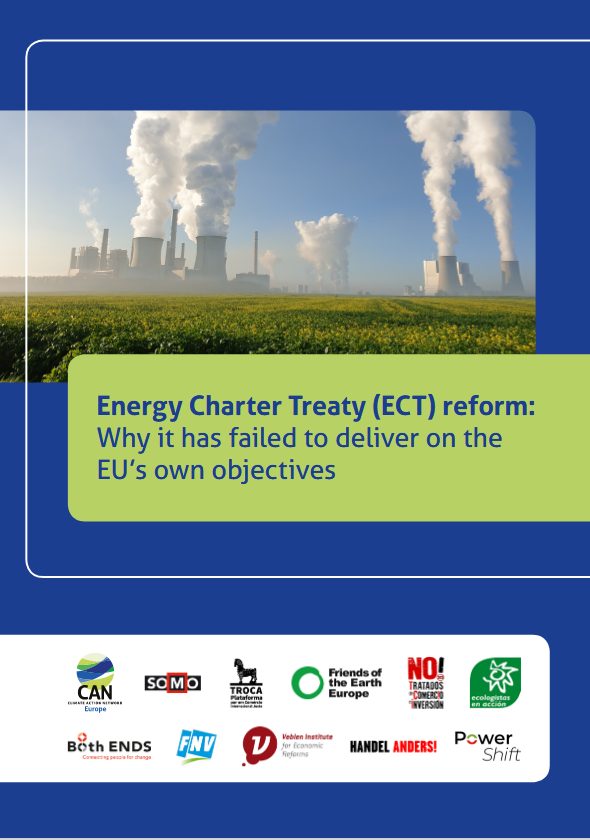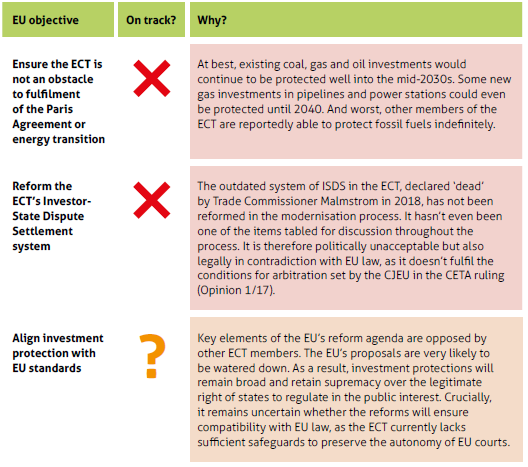
In 2018, the EU started a process to reform the Energy Charter Treaty – an outdated trade and investment treaty protecting investments in the energy sector – setting itself a threefold objective. A new briefing analyses the progress made towards those ambitions.
The EU has long considered the ECT to be outdated and a hindrance to climate ambition. The Treaty’s provisions, effectively unchanged since conception in 1994, include the ability for fossil fuel investors to sue governments through private tribunals for multiple-billions of dollars if action on climate change and the environment damage their future profits.
The briefing’s conclusion is clear: the ECT reform is failing to deliver on the EU’s own objectives. The time for the EU and its member states to decide on a joint withdrawal from the ECT is now. In order to neutralise the sunset clause, which allows investors to sue for another 20 years after a state has withdrawn, states should conclude an additional agreement to not apply this clause amongst one another.

Related Content
We think you’d also like:

Stop the Energy Charter Treaty
The Energy Charter Treaty (ECT) is a major obstacle to fast and effective action on the climate and environmental crisis. Our transformation to a green and fair society will become harder, slower and more expensive if we don’t stop it.







